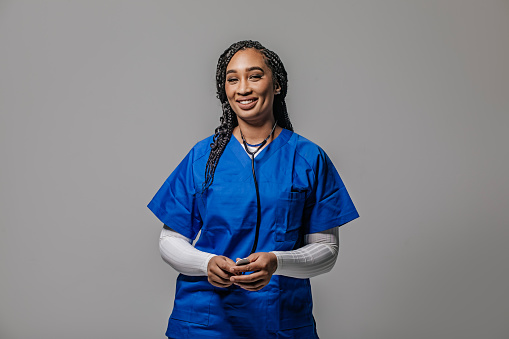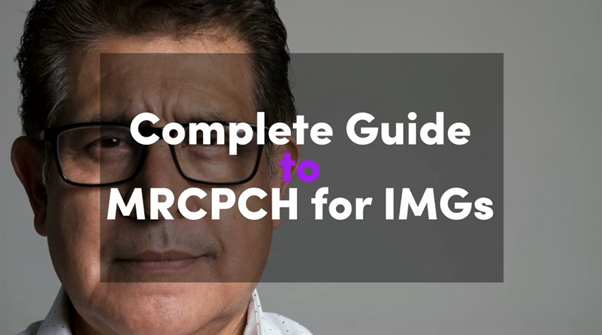Guide to Neonatal Care in the NHS
07 Sept, 202310 minutes
Moving to work in an entirely new healthcare system, such as the NHS, presents many decisions, including which branch of medicine you will be working in. If you have trained in the care of newborns in your home country, or it’s a specialism you’re interested in pursuing, you might find yourself specialising in neonatology. The question is – what does that entail in the NHS?
Neonatal Care in the NHS
Some newborn babies don’t go straight home after birth. In some cases, newborns require specialist medical attention, whether to help them adjust to breastfeeding or because they require monitoring due to a premature birth.
The NHS provides free neonatal care to all newborns within their 200 neonatal units in the UK. These units are divided into three distinct levels: SCBU (special care baby unit), LNU (local neonatal unit), and NICU (neonatal intensive care unit). In these units, neonatal doctors and nurses provide medical care for the following reasons:
- Premature Delivery
- Jaundice
- Birthing Difficulties
- Surgery
- Infections
- Low Birthweight
While the NHS strives to provide the highest quality care possible, unfortunately, the system has experienced staffing gaps over the years, which affects around 10% of neonatal units in the UK. These gaps affect all three levels (although it hits NICU the hardest), and the NHS often covers these gaps with locum doctors. However, that’s a costly way of doing things, which is why the NHS looks to international doctors like you to specialise in neonatology and provide the much-needed care and service needed in these units.
Why the Different Levels of Care?
The reason the NHS separates neonatal care into three levels is because the level of care each newborn needs differs from case to case. Some newborns might need minimal monitoring while going through an illness, whereas other babies may need intensive supervision and treatment. Each neonatal unit will provide the space, technology, and staffing needed to care for the baby in the best possible way. As Michelle McLoughlin, Birmingham Women’s and Children’s NHS Foundation Trust’s Chair, wrote in the National Quality Board Edition,
“The level of neonatal care a baby needs will vary from minimal intervention for a few minutes or hours through to considerable support over many weeks, months or even years. This is why a one-size-fits-all approach is not appropriate.”
So, while some babies might need a couple of minutes of extra attention, others may need months of intensive care and monitoring. The vast difference between these levels of care means the distinction between units is necessary.
Below, we’ll discuss each level of care in more depth, including what it would be like to work in them. If you’re an international medical graduate wanting to specialise in neonatology for the NHS, then this article is for you.
Transitional Care
While the three levels of neonatal care include SCBU, LNU, and NICU, it’s important to also discuss the lowest level of neonatal care provided – transitional care. It isn’t a specific neonatal unit; it is a place where doctors and nurses help a baby transition after experiencing a mild condition after birth.
Transitional care is usually needed for babies experiencing mild conditions like jaundice. They might also need transitional care if they are having difficulties with feeding/latching onto their mother – hence the term “transitional”; this type of medical care aids an infant while they’re adjusting to the world. Mothers are continuously present during this stage and often get advised by neonatal staff regarding caring for their babies.
As a neonatal doctor, you likely won’t be positioned in transitional care; instead, you’ll work in one of the three levels of neonatal units. However, you may travel to these places to offer advice or treatment.
It should be noted that not every hospital has a transitional care unit. In this case, the newborns will go to the special care baby unit instead.

Level 1: Special Care Baby Unit (SCBU)
The SCBU offers a lower level of newborn care. This low-dependency unit offers short-term monitoring and medical care for babies either mildly unwell or born after 32 weeks gestation. The care typically involves helping the baby feed, breathe, and keep a stable temperature. Doctors often support babies with breathing via oxygen therapy. In some cases, babies might be fed through nasogastric tubes.
In the SCBU, babies typically do not need constant observation, and mothers can usually stay by the babies’ side throughout the process. That’s because the SCBU only handles mild conditions in cases where, otherwise, the baby is still developing fine.
As a neonatologist, you might be stationed in the SCBU. You’ll check on neonates, ensuring their treatment is working well and their recovery is steady. The role also involves working closely with the mother, advising and providing support where necessary. In certain cases where a newborn experiences a decline in health, you’ll also be responsible for transferring the baby to a different unit for more specialised care.
Level 2: Local Neonatal Unit (LNU)
The local neonatal unit is a high-dependency intensive care unit that provides medical care for babies born between 27-31 weeks gestation. Care is also given to babies experiencing general unwellness after birth – the type that requires more specialist attention.
In a local neonatal unit, the baby requires constant supervision by specialist staff, both doctors and nurses. The medical care includes feeding babies through a drip, helping the baby breathe through ventilation or CPAP, and body cooling treatments (such as therapeutic hypothermia).
While LNU care is more intensive than the SCBU, the care only tends to span 48 hours, at which point the mother and newborn will either be sent to a more specialised unit or will be able to go home.
Level 3: Neonatal Intensive Care Unit (NICU)
The neonatal intensive care unit offers the most intensive care that a baby will need. Babies in this unit will either be very premature – being born before 28 weeks gestation – or be experiencing a very serious illness or infection. They will also spend longer in this unit than in the others, with some babies even needing months of care in a NICU.
A NICU is run by a mix of highly trained neonatal doctors and nurses, using the most advanced medical technology to monitor the baby. Babies stay inside closed incubators, where they may need feeding support, cooling treatment, and breathing support. While parents and other family members can visit babies in the NICU, visiting hours are often more restricted.
Many neonatal consultants are stationed in the NICU. It’s a highly specialised role, and you’ll work with the most critically ill babies, which can be emotionally challenging but also very rewarding.
Paediatrics Departments
Paediatrics is a specialty within the NHS that leads to neonatology. If you want to specialise in neonatology, you’ll have to first specialise in paediatrics, which involves providing medical care to children.
In the NHS, you’ll find paediatrics-only departments that don’t provide neonatal care. These can either be in very small hospitals or larger paediatric hospitals in a community. These departments offer inpatient and outpatient appointments for children, providing medical care covering a wide range of illnesses, injuries, and disorders.
Typically, as a neonatologist, you won’t work primarily in paediatrics departments. However, some of these departments have a separate neonatology unit within the department that you could end up working in.

Which Neonatal Unit Should You Work in?
To work as a neonatal consultant, you will need the same training and qualifications no matter which neonatal unit you work in. Once qualified, you usually can choose where you work – this will mean picking between one of the three levels. However, keep in mind that you may have to move around, providing your specialised skills to other units in certain circumstances.
Choosing the type of neonatal unit to work in is an entirely personal choice, and it’s a good idea to consider your experience (assuming you specialise in neonatal care in your home country). Working in the NICU makes sense if you want to help the most critically ill newborns. It is also a good choice for the NHS as the NICU is where the most staffing gaps are out of the three levels. That said, you’ll need to have experience working at that level to be able to practice safely if your first role in the NHS.
Working in a Neonatal Unit
Neonatal units provide very fast-paced, intense working environments. You’ll work with the most vulnerable patients – newborns – either experiencing mild issues or critical illness. As such, you’ll experience both the happy moments of families as well as the more emotionally challenging times.
As a neonatal consultant, you will deliver expert care to babies alongside a tight-knit team. You’ll work with the most advanced medical technology to assist you with caring for the babies, and you can expect that technology to evolve and develop throughout your career. It’s a career that requires forward-thinking and quality improvement; as a neonatologist, you’ll be asked to deliver exceptional care during your clinical duties while also looking toward the future and considering how you can improve newborn healthcare as a whole. On top of that, you’ll be expected to manage other doctors and nurses on the unit.
You’ll also provide emotional support and advice to mothers. This is an enormous part of being a neonatal doctor and requires both empathy and stellar interpersonal skills. Sometimes, the role will involve breaking bad news, which is a skill in itself and can be very emotionally challenging.
You’ll work as part of a multidisciplinary effort alongside neonatal nurses and doctors to deliver high-quality care to all newborns while also assisting new mothers with their transitional journey. In terms of setting, you can work at any of the levels of neonatal care discussed in this article. Of course, working in an NICU will be much more intensive than working in level 1 neonatal care. These units are also where you’ll find the most neonatal positions, as there are twice as many gaps in the NICU as there are in the LNU and SCBU.
If you’re interested in moving to the UK to work as a neonatologist, you might wonder about your location options. There are neonatal units throughout the UK, and you have the potential to work at any one of them. Check out the locations on this map, which categorises each unit into the three levels.
How to Become a Neonatal Doctor
As an international doctor, you’ll need to become GMC-registered to work as an NHS doctor. To specialise in neonatology and work as a permanent neonatal Consultant in the NHS, you’ll also need to join the specialist register, which naturally involves more steps.
If it’s a Registrar level position that you’re looking for then standard GMC Registration will suffice and the most common route is to sit IELTS or OET alongside MRCPCH. For junior roles like SHO you can opt for the PLAB route which will also grant you GMC registration.
One option for becoming a Consultant is to pursue a CCT (Certificate of Completion of Training). To get your CCT in neonatology, you’ll need to complete all your specialist training in the UK. You can choose this option if you’re joining the NHS as a junior doctor and don’t have any specialist training from your home country.
Another route to becoming a Consultant is CESR/Portfolio Pathway, which is for IMGs who already meet the requirements to become specialist doctors. To apply for the CESR/Portfolio Pathway route, you’ll need to collect all the necessary evidence of your qualifications and work experience in neonatology, which you can use to get the qualification. This is time-consuming and, depending on your experience, a more complicated process. You can look at our guides here to help you through the process.
With either a CCT or through the CESR/Portfolio Pathway route, you can get on the specialist register and begin applying to permanent Consultant-level neonatal positions.
As well as the necessary experience and qualifications, you should also possess these skills to succeed as a neonatal Consultant in the NHS:
- Leadership
- Organisational Skills
- Empathy
- Ability to Work Under Pressure
- Interpersonal Skills
- Initiative
- Communication Skills
- Research
In Summary
With staffing gaps and the high cost of paying for locum doctors, the NHS is always looking for highly trained overseas doctors to specialise in neonatology – particularly in neonatal intensive care units. So, as an IMG, you have the chance to pursue neonatology as your specialty and work in one of the 200 neonatal units in the UK. The career is intense, emotionally challenging, and highly rewarding. It requires high levels of specialised skill, as well as the ability to connect with families of the newborns. By joining the NHS as a neonatal Consultant, you join the effort to deliver exceptional medical care to infants who need it most.
BDI Resourcing have helped hundreds of Paediatrics and Neonatology doctors with their move to the NHS and we would love to help you. Please email your CV to us and we’ll be happy to help.


